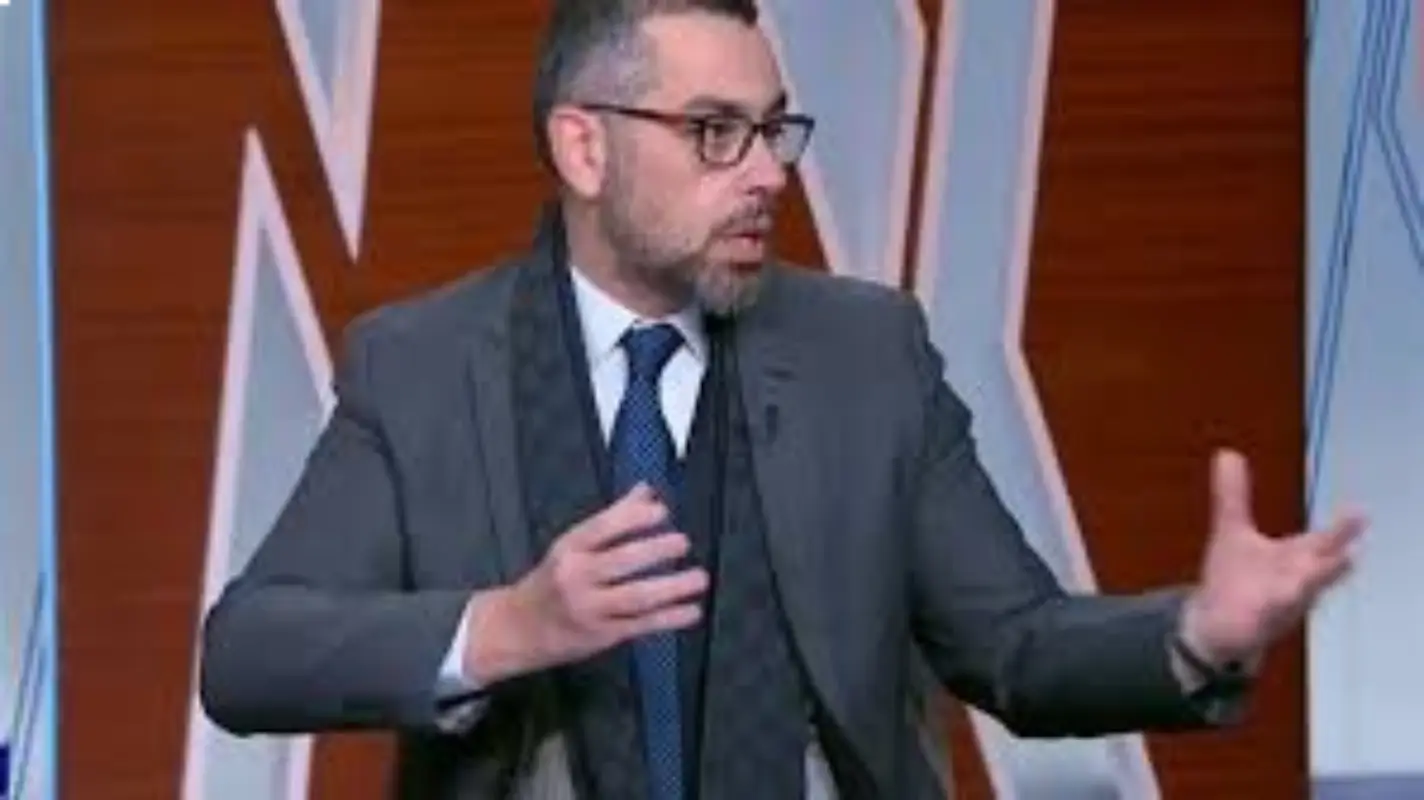Dr. Mohamed Fouad, an economic expert and member of the Cabinet’s Advisory Committee for Macroeconomic Policy, has dismissed recent claims that the International Monetary Fund (IMF) refused to disburse a loan installment to Egypt due to unmet conditions on fuel subsidy adjustments. He described these reports as entirely false and baseless. n nFouad clarified that the current financial arrangement with the IMF is tied specifically to an environmental sustainability program, not social welfare policies or domestic subsidy frameworks. The $1.3 billion loan includes ten technical and environmental benchmarks, such as preparing corporate assessments on carbon emissions exposure—steps Egypt is already advancing through its renewable energy transition. n nHe emphasized that assertions about two stalled conditions blocking disbursement are inaccurate. According to Fouad, an incomplete report by a news agency led to widespread misinformation, causing unnecessary public confusion. n nEgypt is pursuing a comprehensive economic strategy rooted in national expertise and aligned with Egypt Vision 2030, he noted. The reforms being implemented are ultimately designed to benefit citizens, and the country’s economic future depends more on domestic innovation and human capital than on any single international financing program. n nSeparately, Dr. Amr Basile, Central Director of Technical Education Development at the Ministry of Education and Technical Education, revealed plans to establish specialized pharmaceutical schools in Helwan, Obour City, and Borg El Arab. These institutions are part of a broader national strategy to align graduate skills with labor market demands. n nBasile explained that these locations were chosen due to their proximity to major pharmaceutical manufacturing hubs. The initiative aims to equip students with both theoretical knowledge and hands-on training, enabling them to secure well-paying jobs immediately after graduation. Graduates will also have the option to continue their studies and earn a technological bachelor’s degree in just two additional years. n nThe project draws on a partnership with Italy, the world’s third-largest pharmaceutical producer, focusing on adopting advanced curricula and dual-training systems. This collaboration ensures students receive a hybrid education combining Egyptian and Italian standards. n nThe Ministry of Health and the Egyptian Drug Authority are jointly overseeing curriculum development in line with global benchmarks, ensuring graduates meet international industry requirements. n nThis initiative marks a significant milestone: for the first time, students will earn dual certification—one from Egyptian authorities and another from their Italian counterparts—enhancing their employment prospects both domestically and abroad. The announcement was made during a phone interview with media personality Neshat El-Dehy on the program “Bil Waraqa wal Qalam,” broadcast on TeN on Saturday evening. n— news from موقع الموقع
— News Original —n«اقتصادي» يكشف حقيقة رفض صندوق النقد منح مصر شريحة جديدة من القرضn nنفى الدكتور محمد فؤاد، الخبير الاقتصادي وعضو لجنة الاقتصاد الكلي الاستشاري بمجلس الوزراء، ما تردد مؤخرًا بشأن رفض صندوق النقد الدولي صرف شريحة من القرض لمصر بدعوى عدم تطبيق شرطين متعلقين برفع الدعم عن المحروقات، مؤكدًا أن هذه الأنباء “عارية تمامًا من الصحة” ولا أساس لها. n nوأوضح “فؤاد”، أن القرض الحالي يرتبط ببرنامج خاص بالبيئة والاستدامة، وليس له علاقة بالدعم الاجتماعي أو السياسات الداخلية، مشيرا إلى أن الشروط العشرة الخاصة بالقرض والبالغة قيمته نحو 1.3 مليار دولار تتعلق بإجراءات فنية وفنية بيئية، من بينها إعداد تقارير حول مدى تعرض الشركات لانبعاثات الكربون، وهو ما تسير فيه مصر بالفعل عبر خطوات نحو التحول إلى الطاقة المتجددة. n nنرشح لك:«فؤاد»: 30 محمية طبيعية تغطي 15% من مساحة مصر ضمن خطة للحفاظ على التنوع البيولوجي n nوأضاف أن ما جرى تداوله عن وجود شرطين معطلين لصرف الشرائح غير دقيق، موضحًا أن إحدى وكالات الأنباء تناولت الموضوع بشكل غير مكتمل، ثم تناقلته بعض المواقع، ما أدى إلى إثارة بلبلة في الرأي العام. n nوأكد أن مصر تضع برنامجًا اقتصاديًا متكاملًا يستند إلى خبرات وطنية ويتماشى مع “رؤية مصر 2030″، مشددًا على أن الإصلاحات المطلوبة بالأساس تأتي لمصلحة المواطن، وأن مستقبل الاقتصاد المصري لا يتوقف عند برنامج الصندوق، بل يتجاوز ذلك بجهود أبناء مصر وعقولهم. n nوفي سياق أخر، كشف الدكتور عمرو بصيلة، رئيس الإدارة المركزية لتطوير التعليم الفني بوزارة التربية والتعليم، عن تفاصيل مشروع إنشاء مدارس متخصصة في صناعة الدواء في مناطق حلوان والعبور وبرج العرب، وذلك في إطار إستراتيجية الدولة لتأهيل خريجين يتوافقون مع احتياجات سوق العمل. n nوأوضح “بصيلة”، أن اختيار هذه المواقع جاء لارتباطها بكبرى شركات صناعة الدواء في مصر، مشيرًا إلى أن الهدف هو إعداد طلاب يمتلكون المهارات العلمية والعملية اللازمة، بما يتيح لهم الحصول على فرص عمل مجزية فور التخرج، مع إمكانية استكمال دراستهم للحصول على بكالوريوس تكنولوجي بعد سنتين فقط. n nوأضاف أن التجربة المصرية تستند إلى شراكة مع إيطاليا، التي تُعد الدولة الثالثة عالميًا في صناعة الدواء، حيث يركز التعاون على تطبيق أحدث المناهج ونظم التدريب، بما يتيح للطلاب الحصول على تعليم مزدوج يجمع بين الجانب المصري ونظيره الإيطالي. n nوأكد أن وزارة الصحة وهيئة الدواء المصرية تشرفان على إعداد المناهج الدراسية وفقًا للمعايير العالمية المعتمدة، بما يضمن تأهيل خريجين قادرين على مواكبة التطورات العالمية في مجال الصناعات الدوائية. n nوأشار إلى أن هذه التجربة تمثل خطوة غير مسبوقة، إذ سيحصل الطالب لأول مرة على شهادتين معتمدتين: إحداهما من الجانب المصري والأخرى من الشريك الإيطالي، ما يعزز من فرص العمل داخل مصر وخارجها، جاء ذلك في اتصال هاتفي مع الإعلامي نشأت الديهي ببرنامج “بالورقة والقلم” المذاع عبر فضائية “TeN”، مساء السبت.
